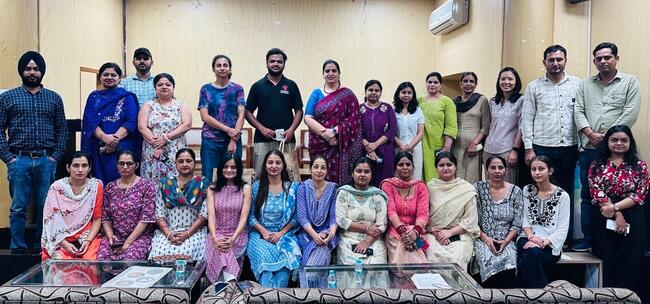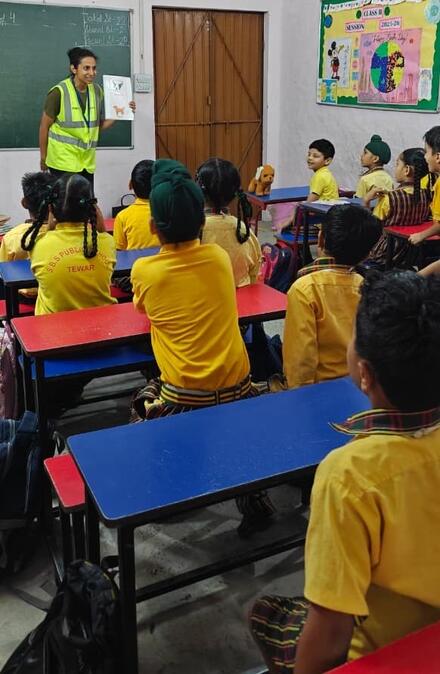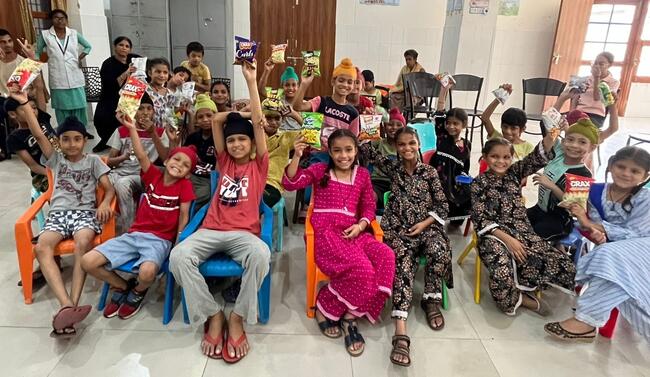September’s Excellence in Action: Peedu’s People
In August 2024, GARC recognized its first Rabies Center of Excellence (RCE). RCEs approach rabies elimination in their community with a keen awareness of local challenges. As part of our Communities Against Rabies initiative, we want to showcase the incredible work that they do. For this month’s Excellence in Action, we are proud to share the work of Peedu’s People, Punjab, India.
They are a non-profit organization that was founded in 2014. They work tirelessly to reduce human-animal conflict and establish compassion for all species. They believe in creating awareness by:
- Helping sick and injured stray animals.
- Vaccinating and sterilizing free-roaming dogs and cats to create Puppy Free and Rabies Free Zones.
- Educating children on how to co-exist with animals. Awareness sessions for adults about understanding rabies and avoiding dog bites.
- Hosting cleanliness drives and better garbage management sessions to help control the population of free-roaming dogs.
- Counselling dog bite victims at vaccination clinics.
- Explaining the importance of PrEP and PEP to NGOs and citizens.
They believe in transforming cruelty into kindness. Their efforts are well known in terms of rabies prevention and bite management campaigns, which include vaccination and public awareness campaigns.

Tell us more about who you are and where you work.
Our organization runs a chain of programs dedicated to the prevention and elimination of rabies. We vaccinate stray animals (dogs, cats, cows, and horses) against rabies. We also provide counselling to dog bite victims in hospitals and dispensaries to raise awareness about rabies prevention and treatment.
We are currently working with the Municipal Corporation to conduct strategic sterilization programs and we are focusing on vaccinating and sterilizing puppies and kittens to prevent the spread of rabies from an early stage. We conduct rabies awareness programs in government and private schools to educate children about the risk and prevention of the disease. Furthermore, we also
- capture and quarantine suspected rabid dogs,
- carry out ante mortem testing of suspected cases,
- prepare detailed reports on measures for protection against rabies, and
- distribute these reports to the media for public information.
Most recently, we signed a Memorandum of Understanding with the Government of Punjab to act as implementation partners of the State Action Plan for the Elimination of Rabies (SAPRE 2030). We will be coordinating with the health department, further consolidating our role in rabies elimination efforts.

What are your biggest challenges in working as an RCE?
Some of the biggest challenges that we have faced is the lack of coordination between stakeholders and an unenthusiastic attitude towards rabies preventative care. There is also a lack of planning and resource disbursement by the government stakeholders. We have to rely on using our own funds to run our campaigns.
Why did you want to be a GARC Rabies Centre of Excellence?
It gives us the legitimacy and the ability to help with a modicum of recognition and authority. With GARC’s recognition and endorsement, we are taken a little more seriously.
Do you have any campaigns that you want to highlight for 2025?
We are attempting to be a 'Rabies Free City' and a 'Puppy Free City (100% sterilization) in Chandigarh' over the next 2 years.
How have you used the GARC resources in your community?
We use the GARC Education Platform to create awareness. Our rabies educators are volunteers, their friends and people who sign up at our awareness campaigns. We have encouraged them to complete the Rabies Educator Certificate (REC) on the GARC Education Platform. In the past year more than 110 of our volunteers have completed the REC. We also make use of the posters and printed material to create awareness in our communities.
